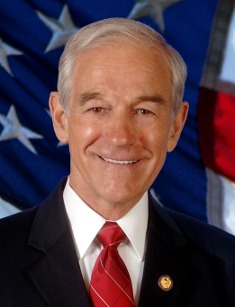Is the US a fixer or a troublemaker? Would a less interventionist US make the treatment of international conflicts easier or harder? Ron Paul has been accused of isolationism. But it is worth taking his foreign policy more seriously.
In 2008, Democrats were voted to the White House with a clear mandate: end wars in Iraq and Afghanistan; restore the commitment of American authorities to the rule of law – stained, internationally, by Abu Ghraib and Guantanamo, and internally by challenges to civil liberties contained in the Patriotic Act; as well as to reverse the severe economic downturn caused by the explosion of the real estate bubble.
In the third year of his term, President Obama has finally accepted to withdraw American troops from Iraq, leaving behind a time-bomb, fuelled by sectarian tensions and geopolitical disputes. US involvement in Afghanistan and Pakistan, in the meanwhile, has increased, along with the risk of civil war in both countries. In Libya, a new model for regime-change intervention was tested, setting the stage for war against Syria and Iran, under the cover of dubious UN resolutions, through the use of ‘opposition leaders’ created out of thin air or taken way out of proportion ↑ [1]. Considered unworthy of greater efforts, Yemen and Somalia have witnessed the proliferation of drone attacks. Troops have been sent to Uganda. Bahrain, in the other hand, received a blank check to act against its own people, with military support from Saudi Arabia, in the interest of stability in the Persian Gulf. Guantanamo, in the backdrop, remains a legal black hole, either from the viewpoint of international law or against the framework of the US Constitution.
Internally, stimulus policies have proved far less effective than it was assumed. The debt ceiling discussion, in this context, is not trivial: there is a limit, indeed, to what governments can do to artificially pump up business cycles. As one rating agency correctly observed, this limit has more to do with politics than with economics, in a sense, however, not so clearly understood: the problem is not partisan or electoral politics; the real issue has to do with the ability of the US government to forcibly extract higher amounts of money from the American population to sustain long-term interventionist economic policies through over-taxation and increased inflation. More
